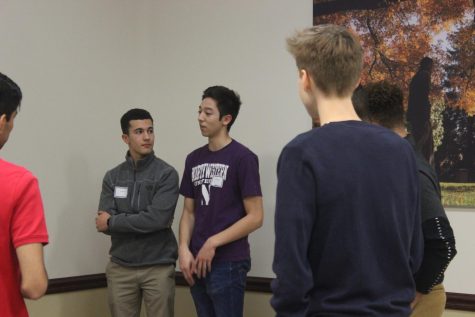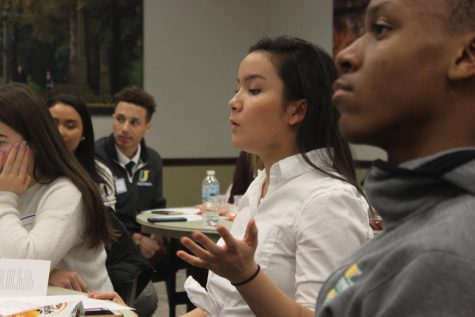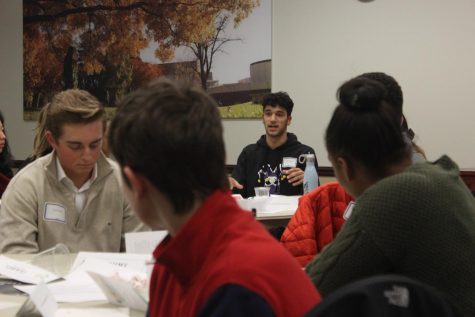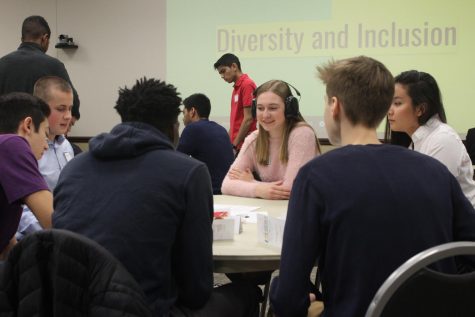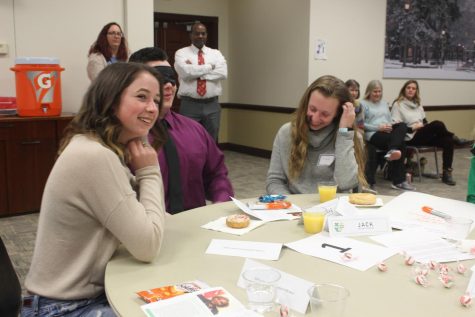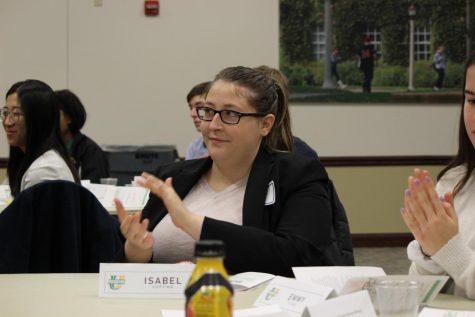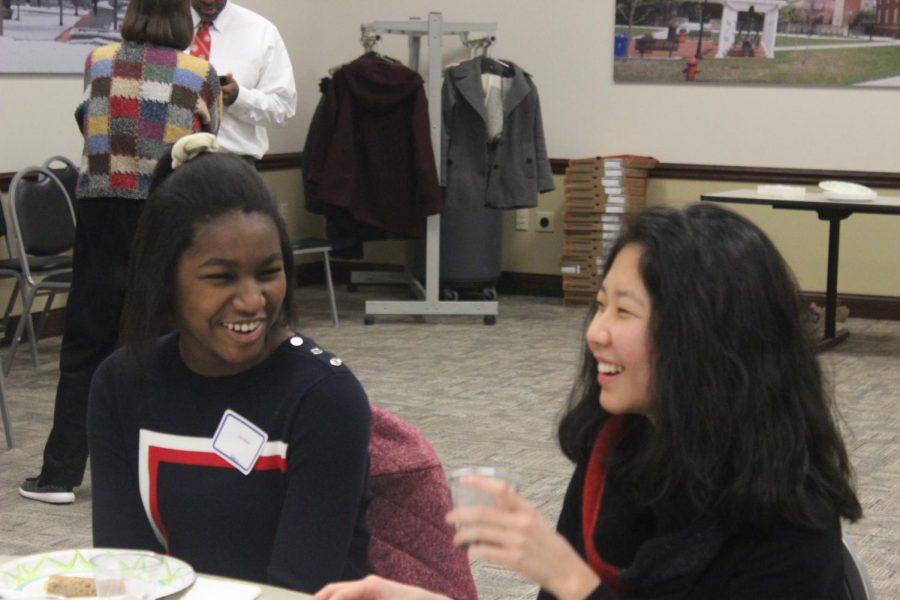Creating Conversation: Inaugural Diversity Retreat addresses why diversity (of all kinds) is worth talking about
February 27, 2019
Looking around, you would have seen students deeply engaged while sharing stories, listening empathetically, and thinking about change as faculty waited outside. After students had discussed extensively, faculty entered ready to move to the next activity. However, as they walked in, a student responded with a protest that all the students shared: “We want more time to talk.”
This seemed to be the trend at the first ever Diversity Retreat, for at the end of the day, students and faculty alike wanted to continue the dialogue. The idea for this event began after faculty discussions pointed out how U-High’s student body could improve in diversity by having more representation of students with different races, varying socioeconomic statuses, visual and hearing impairment, etc.
Fast-forward to February where students, faculty, and important community members congregated for the important topic of diversity. Through discussions of representation of all kinds of people, the goal was to take steps to create a more diverse, accepting environment.
This was a sentiment that keynote speaker Dr. Shamaine Bertrand shared. Her passion for students’ learning process is evident through her job as an assistant professor of elementary education at ISU, where she educates future teachers on how to best teach a diverse group of students. She used her address to share with the students ways to use their voices.
“In order to make everyone feel included,” Bertrand said. “We have to have knowledge about diversity and what different groups are like in their culture.”
She was not alone in her effort to understand people of all different backgrounds. Dr. Emma Bucher shared this optimism as well. Bucher and her colleague, Dr. Dakesa Piña, both ISU professors as well, encouraged students to speak out when others say comments that are ignorant or offensive.
“If we can just start getting more of this idea of treating others with generosity and respect, and approaching the world with a sense of humility, that’s what this [dealing with microaggressions] training is about,” Bucher said. “It’s especially important for you all, because you are going to be the ones that are shaping the future.”
At the end of the day, the messages from the speakers were well-received.
“The retreat started a lot of conversation, and having people listen to that conversation is really important for the future,” senior Jenny Park said.
With the words of wisdom from these professors and faculty, students felt empowered to enact their own change.
“[The retreat] reinforced the importance of my voice and the difference that I can make,” senior Kellie Stempinski said. “It reminded me that I’m not confined because I’m a student; if anything it elevates my platform.”
Students were able to see the how a lack of diversity is a relevant problem, and also how fixing this problem can lead to a better future for U-High.
“Having more people of color and minorities of all kinds, it would be a service to the school,” senior and Student Body President Shawn Mohammed said. “It’s something that I want to see.”
Improving the representation and inclusion of various groups of students and faculty at U-High is a goal for the near-future. However, inclusion and representation are issues that concern our community and even our country. Being able to accept and embrace the differences that we have among us is a skill that all of us should strive to have.
Linda Foster, president of the NAACP Bloomington-Normal branch, who spoke at the retreat, has hopes for such a future.
“At some point,(maybe we won’t have) to use the word diversity,” Foster said. “We can just see it. We won’t have to discuss any longer; it’s just there.”
